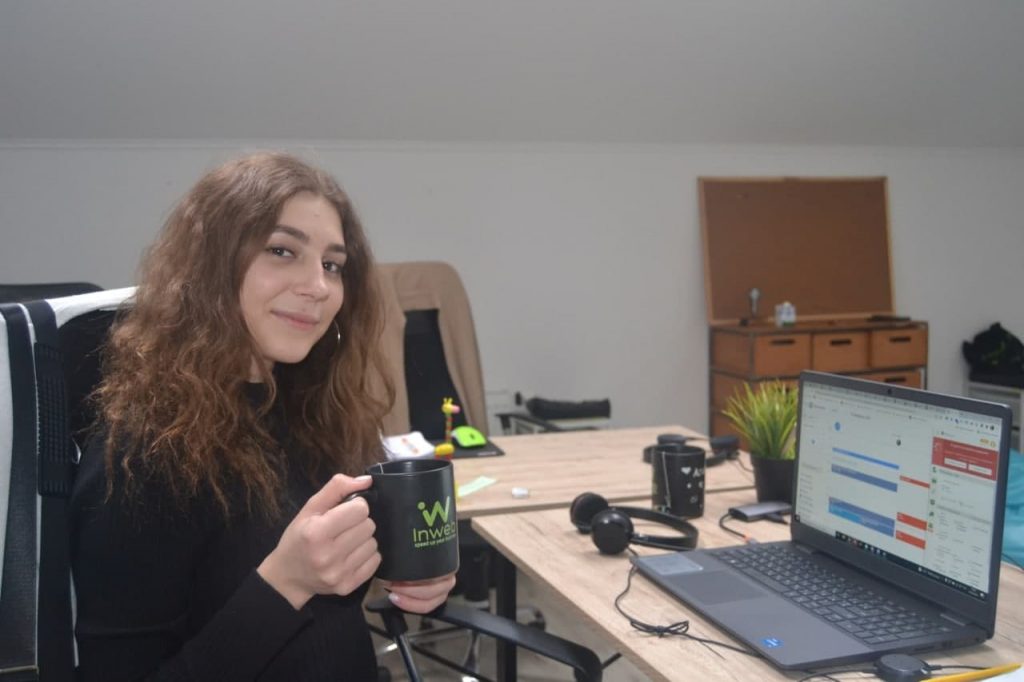5 steps forward. How to build a trusting relationship with a client: personal experience
Every day at work is communication. I call a lot, invite people to personal meetings, including online ones. I write letters and communicate via messengers. Not only that, but I ask a lot of questions and listen carefully, write down all the answers.
I am a Sales Manager. All the literature on my profession is replete with advice on how to build a trusting relationship with a client and become his reliable adviser for many years to come.
But, after reading a lot of books, reviewing webinars, trainings and courses, I realized that there is no single scheme by which you can gain trust. How do you build a strong, trusting relationship with a client?
Let me share my experience and conclusions that I made after studying specialized literature and trainings.
1. Trust. Trust. Trust.
There is an excellent book on this subject, «The Trusted Advisor» by David Meister and Robert Galford. Perhaps this is the best book on how to build trusting relationships.
Trust is personal. It’s about emotions. The most important thing in trust is honesty, reciprocity, understanding and acceptance. When I communicate with clients, I learn something new every day. I am not ashamed to say that I do not know or do not understand something. The main thing is not to be silent. Yes, sometimes the obvious things are explained to me. More and more times in a row! And sometimes I explain to my clients what seems obvious to me :)
Cooperation with Inweb always starts with trust.
2. The ability to win favor
This is a whole world. Everything is not as simple as it seems. Agree, you would not want to continue the dialogue with me if I said “yep”, “hmm” to any of your answers and only pretended to listen carefully. You would think that I am a completely uninteresting person. And we wouldn’t even get to a point where you could judge my competence or professionalism.
During meetings, I smile a lot, I give some examples from life experience so that our conversation won’t get boring. We have a small talk with a client. Crucial thing is sincerity. Falsehood is immediately felt.
I remember my first sale. Our dialogue with the client began in a standard way: he talked a lot, I listened, asked clarifying questions. We had a long and intensely productive conversation. I tried to fully immerse myself in his business, as much as possible when meeting, in order to choose the right promotion strategy. I even tried to go through the entire path of his customer in order to give sensible advice on what and how to improve, to make things easier.
To be honest, the client was initially not very disposed towards me and was not at all in a hurry to share the details of his business. But still, I managed to collect the information necessary for the work. I took a break to prepare a promotion strategy. And then the day X came — the day of the presentation of our offer to the client.
I started talking about the strategy to the client, but I felt that he had no interest. He just looks at the screen. And that’s it. I ask if he understands? Does he understand how the tool works? The client honestly admits that he does not understand anything. It’s like our work plan is written in a language that only a select few can access. And… then I realized what to do!
I once again explained to him each point of the work plan with examples. It was the examples that inspired our work. I wasn’t in a hurry, I wasn’t nervous. At the end of the meeting, the client said that I was the first person who clearly explained to him how internet marketing tools work.
It would seem obvious things. But how often do we ask our customers if they understand everything? Two days later, the client called and said he wanted to work with us because he believed me. The fastest paid bill and signed contract in my life. Two weeks later, the client handed over his second project to us.
From time to time we call each other and I still help him somewhere to learn the nuances of Internet marketing.
Did you know that Inweb sales people are called «Solutions managers». And in order to understand the needs of the client, analyze his situation, explain the idea and propose a plan of action, you need to have a great understanding of not only marketing, but also psychology. Know how to ask the right questions and improvise if necessary.
3. Involvement
For me, it’s not about “ask 100 questions on a list and write down the answers.” Engagement is genuine interest. This is when you can discuss one issue for twenty minutes, if it is important to the client. You’re just really interested in how things work for him. This is to offer your ideas to improve the work of the client’s business. It is to look at the situation from a new perspective. Somewhere to empathize and sympathize, to speak out and help.
You can’t pretend to be involved.
4. Professionalism
All clients who contact you expect you to have expertise. But, I repeat, without the points listed above, things simply will not reach your professionalism.
In order to be a cool consultant, you need to upgrade your skills. To study. Grow. Learn. This is where books come in handy. I recommend reading:
- «Start with no» by Jim Camp;
- «Everything is Negotiable!» by Gavin Kennedy;
- «Decoded: The Science Behind Why We Buy» by Phil Barden;
- «Thinking, Fast and Slow» by Daniel Kahneman.
5. Honesty
This subject could be a paragraph, but I decided to write it as a conclusion.
Honesty is the best way to keep and win over a person. No wonder they say: “Better the bitter truth than the sweet lie.” There is no need to embellish, hoping that the client will forget, not ask, etc.
At Inweb, we strictly adhere to this rule. We always talk about risks (if any) at the start and do not offer tools that will not work.
Many points can be added to what has been said. I have listed only the fundamental qualities. Without these building blocks, it is difficult to build a relationship with any person. Especially with a potential client.
If you need help optimizing, developing a website, setting up contextual advertising or promoting mobile applications, please contact us!
![[:ru]Екатерина[:ua]Катерина[:en]Ekaterina[:] [:ru]Гавдан[:ua]Гавдан[:en]Gavdan[:]](https://inweb.ua/blog/wp-content/uploads/2022/02/ekaterina-gavdan.jpg)


